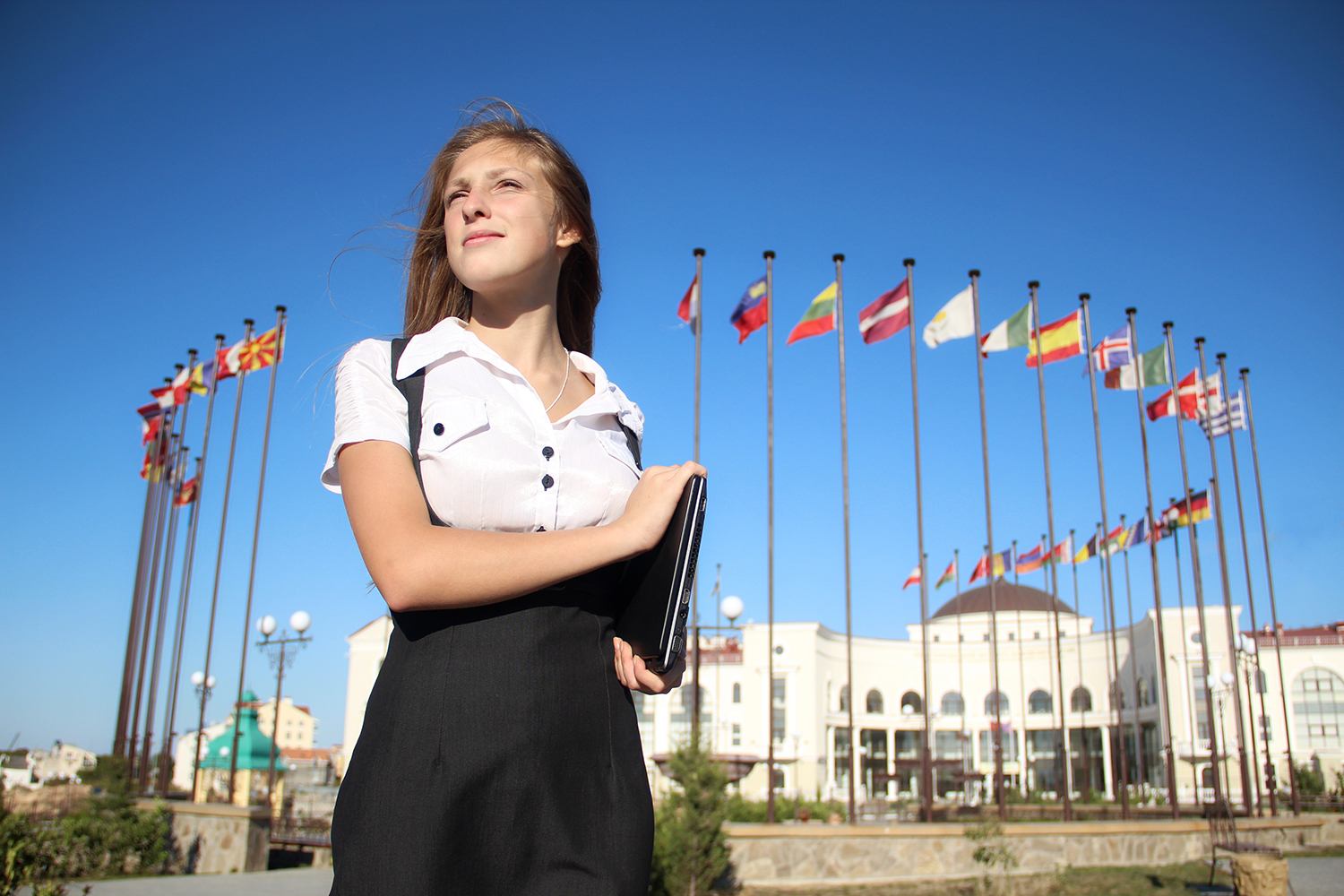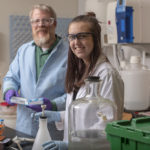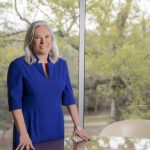Argos on the Move. International Programs Offering a Vital Global Experience

“If I’m an advocate for anything, it’s to move. As far as you can, as much as you can. Across the ocean, or simply across the river. The extent to which you can walk in someone else’s shoes or at least eat their food, it’s a plus for everybody. Open your mind, get up off the couch. Move.”
Isn’t that the truth? I just love this quote from Anthony Bourdain, the celebrity chef, author, travel documentarian and television personality. Back when he was on the Travel Channel, I used to tune into his show, “No Reservations,” just to see where he went and what he ate there.
This summer, I did a little traveling of my own when I met students participating in UWF’s Catalyst Program in Paris. It was one of the best weeks I’ve had “in the office” since becoming president at UWF. The students and Dr. Eric Nelson, a professor of history at Missouri State University who teaches the Catalyst course, “Throne Games,” had just arrived from London. They were preparing to complete their final course project, writing letters to a new king (of the era), telling him how he should lead.
Studying abroad hones essential career skills
It may sound like an idyllic summer experience for a college student, but it’s much more than that. Globalization in education is vital for today’s upcoming graduates.
IIE, an international education and exchange organization, highlights many of the benefits of studying abroad, including that “globalization is changing the way the world works, and employers are increasingly looking for workers who have cross-cultural competence and cutting-edge technical skills.”
A recent study by the British Council shows that employers are under strong pressure to find employees who have both technical knowledge and “soft skills,” such as critical thinking, problem solving, time management and communication, all skills that can be honed while flexing your international aptitude.
In addition to necessary career skills, students who participate in study abroad programs have higher GPAs and are statistically more likely to remain in college and graduate on time.
Argos are packing their bags
UWF’s Office of International Programs helps students connect with opportunities that align with their interests. The staff there helps everything else fall into place, from academic credit, finances and passports to booking the international flight.
The University’s enthusiasm and support for students gaining global experiences is reflected in our participation numbers. More Argos are jetting off to countless destinations every year.
Mobile-classroom study abroad programs
My visit with Catalyst students highlights one of two partnerships we have with GlobalizEdu. Catalyst is a mobile-classroom study abroad program that uses London, Paris, Berlin and Prague as its teaching sites over the course of five weeks each summer. Museums, parks, cafes, corporate sites and historically important settings serve as classrooms, where students make telling connections between course material and context under the guidance of program faculty and guest lecturers. This summer, approximately 75 students from UWF and other universities immersed themselves in courses in history, art, marketing and psychology through this experience.
Our second mobile-classroom partnership is The Village, which hosts classes in a small village in France’s Loire Valley, Paris, London and Barcelona for 12 weeks each fall. The program is designed for academic sophomores and above and offers courses in STEM, business, humanities and the fine arts. French and Spanish are also offered at all levels.
Exchange programs with 21 partner institutions
UWF also offers exchange programs, partnering with 21 institutions across the world. For a semester, or up to a year, a student can attend a university abroad while paying UWF tuition and earning credit toward their majors. Scholarships cover most of the cost. One example is our exchange with the University of Tamkang in New Taipei City, Taiwan, which focuses on international relations and Asian studies.
Global experiences for specific programs
Fine arts majors can research Irish plays, music and art while touring Ireland through UWF’s Irish Experience program. Theatre, music and art students have the opportunity to perform in venues such as the George Bernard Shaw Theatre and Carlow Cathedral in Carlow and the Royal Irish Academy of Music in Dublin. Once they complete the program, student participants host a performance for the community back home.
This summer, our Kugelman Honors students headed to Peru. UWF’s honors program offers exclusive study abroad opportunities every summer, including destinations in Europe, South America and Asia. Honors students receive free tuition for study abroad courses, as well as scholarships to help cover transportation costs and international program fees.
Faculty-led programs focus on research, culture
Our most popular way to go abroad is by taking part in a faculty-led study abroad program. During these short-term study programs, small groups of students travel with UWF professors in the summer semester or during term breaks. A sample of recent offerings include:
- Participating in local cultural events, field trips, homestays and visits to historical sites in the Japanese cities of Tokyo, Gero, Kyoto and Hiroshima during six weeks of study abroad with Dr. Douglas Trelfa.
- Traveling to Germany to see German culture first-hand, from the medieval ages through the 21st century. Students visit Berlin, Potsdam, Dresden and Leipzig during a three-week trip.
- Heading to some of the most remote and stunning places worldwide to focus on environmental education and conservation with Operation Wallacea, an organization that connects a network of academics from European and North American universities who design and implement biodiversity and conservation management research expeditions.
Last summer, Erika Stanish, ’18, traveled to South Africa with Operation Wallacea. Working with researchers at the Dinokeng Game Reserve, the first free-roaming “Big 5” game reserve next to an urbanized area, Stanish collected data on game transects, bird point counts and habitat assessments.
In a blog about her experience, Stanish said, “Dinokeng is a unique reserve as it integrates human and nature in a new way. One of the days, we spotted a bull elephant stopping traffic on a main road. Cars pulled over and piled up on the sides to watch him lumber across the street and give a small trumpet, telling patrons to not be in his way. It was a special sight, showing a glimpse of the future of South Africa.”
It’s my hope that one day, every UWF student will have a story like Stanish’s to tell. I can’t wait to browse through the photos from all of the study abroad experiences this summer. While those photos will showcase the incredible diversity of our study abroad programs, they all will have something in common: an incredible backdrop, a UWF flag waving in the wind and the sense that we’re getting a small glimpse into someone’s best day yet.



